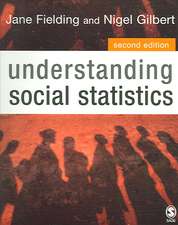Evidence-Based Policy: A Realist Perspective
Autor Ray Pawsonen Limba Engleză Paperback – 6 apr 2006
The book will be essential reading for all those who loved (or loathed) the arguments developed in Realistic Evaluation (Sage, 1997). It offers a complete blueprint for research synthesis, supported by detailed illustrations and worked examples from across the policy waterfront. It will be of especial interest to policy-makers, practitioners, researchers and students working in health, education, employment, social care, criminal justice, regeneration and welfare.
| Toate formatele și edițiile | Preț | Express |
|---|---|---|
| Paperback (1) | 430.09 lei 6-8 săpt. | |
| SAGE Publications – 6 apr 2006 | 430.09 lei 6-8 săpt. | |
| Hardback (1) | 1378.10 lei 6-8 săpt. | |
| SAGE Publications – 10 apr 2006 | 1378.10 lei 6-8 săpt. |
Preț: 430.09 lei
Preț vechi: 505.98 lei
-15% Nou
Puncte Express: 645
Preț estimativ în valută:
82.30€ • 88.00$ • 68.62£
82.30€ • 88.00$ • 68.62£
Carte tipărită la comandă
Livrare economică 17 aprilie-01 mai
Preluare comenzi: 021 569.72.76
Specificații
ISBN-13: 9781412910606
ISBN-10: 1412910609
Pagini: 208
Ilustrații: Illustrations,
Dimensiuni: 170 x 242 x 14 mm
Greutate: 0.38 kg
Ediția:1
Editura: SAGE Publications
Colecția Sage Publications Ltd
Locul publicării:London, United Kingdom
ISBN-10: 1412910609
Pagini: 208
Ilustrații: Illustrations,
Dimensiuni: 170 x 242 x 14 mm
Greutate: 0.38 kg
Ediția:1
Editura: SAGE Publications
Colecția Sage Publications Ltd
Locul publicării:London, United Kingdom
Recenzii
"This book is an excellent resource for evaluators who wish to inform policy decisions with collective insights gained from diverse threads of relevant literature...This book is timely in its emphasis on the complex, multifaceted nexus between evidence and policy."
Cuprins
Evidence-Based Policy
The Promise of Systematic Review
Realist Methodology
The Building Blocks of Evidence
Systematic Obfuscation
A Critical Analysis of the Meta-Analytic Approach
Realist Synthesis
New Protocols For Systematic Review
Reviewing Implementation Processes
Megan's Law
Reviewing Inner Mechanisms
Youth Mentoring
Reviewing Outer Contexts
Naming and Shaming
Conclusion
Flying `The Tattered Flag of Enlightenment'
The Promise of Systematic Review
Realist Methodology
The Building Blocks of Evidence
Systematic Obfuscation
A Critical Analysis of the Meta-Analytic Approach
Realist Synthesis
New Protocols For Systematic Review
Reviewing Implementation Processes
Megan's Law
Reviewing Inner Mechanisms
Youth Mentoring
Reviewing Outer Contexts
Naming and Shaming
Conclusion
Flying `The Tattered Flag of Enlightenment'
Notă biografică
Given my job title, it will come as no surprise that my main interest lies in research methodology. This does not quite bracket me with the technical nerds, however, for I have written widely on the philosophy and practice of research, covering methods qualitative and quantitative, pure and applied, contemporaneous and historical. There is a common ¿realist¿ thread underlying every word, albeit a modest, middle-range, empirically-rich kind of realism.
Descriere
Looking at the spread of evidence-based policy making across the Western world, this book examines the methodological assumptions that lie behind this drive for government departments, academic research projects and NGOs to adopt an 'evidence-based' approach, when so little has been done to ask what works in an evidence-based context.









